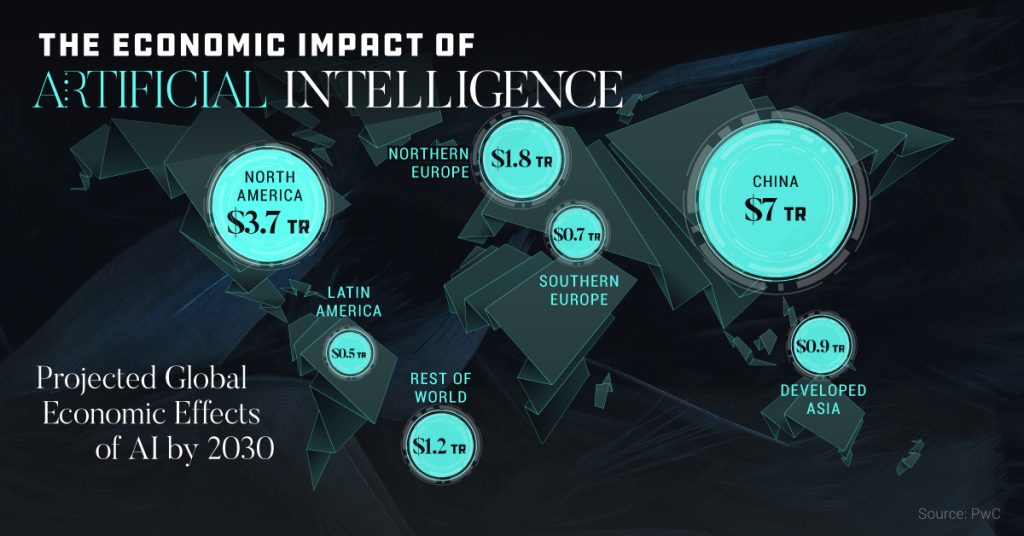Artificial intelligence (AI) has been a buzzword for quite some time now, and its impact on the job market has been a topic of discussion as well. Many experts believe that AI will cost the world 2/3rd jobs, and the hardest hit sectors have already been highlighted by Goldman Sachs. In this article, we will explore the impact of AI on the job market and which sectors are most at risk.

What is Artificial Intelligence?
Artificial intelligence refers to the simulation of human intelligence in machines that are programmed to think and learn like humans. AI systems are designed to perform tasks that would typically require human intervention, such as language translation, image recognition, and decision-making. AI systems are powered by algorithms that are trained on vast amounts of data, which allows them to learn and improve over time.
AI and the Job Market
The rise of AI has led to concerns about the impact on the job market. Many experts believe that AI will replace human workers, resulting in significant job losses. This is not a new phenomenon, as technological advancements have always had an impact on the job market. However, the speed at which AI is developing and being adopted is unprecedented.
A report by the World Economic Forum (WEF) estimates that by 2025, automation and AI will result in the displacement of 85 million jobs worldwide, while creating 97 million new ones. This means that there will be a net gain of 12 million jobs. However, the report also highlights that the jobs created may not necessarily match the jobs that are lost in terms of skill level, location, or wages.
Hardest Hit Sectors
According to a report by Goldman Sachs, some sectors are more at risk of job losses than others. The report highlights that AI will have the most significant impact on sectors that involve repetitive and routine tasks, such as manufacturing and retail. These sectors are already experiencing significant changes due to automation and AI.
Manufacturing
Manufacturing has been one of the sectors most impacted by automation and AI. The use of robotics and automation has already led to significant job losses in the sector. However, AI is expected to have an even more significant impact. AI-powered robots can perform tasks that require cognitive skills, such as decision-making and problem-solving. This means that they can take on more complex tasks, leading to further job losses.
Retail
Retail is another sector that is already experiencing significant changes due to automation and AI. The rise of e-commerce has led to the closure of many brick-and-mortar stores, resulting in job losses. AI-powered chatbots and virtual assistants are also becoming increasingly common in the retail sector, leading to further job losses.
Transportation
The transportation sector is also at risk of significant job losses due to the rise of autonomous vehicles. Self-driving cars and trucks are becoming increasingly common, which could lead to the displacement of millions of jobs in the transportation sector. However, it is worth noting that the widespread adoption of autonomous vehicles is still some way off, and there are significant regulatory and safety challenges that need to be addressed.
Healthcare
The healthcare sector is another area where AI is expected to have a significant impact. AI-powered diagnostics and treatment planning tools are already being developed, which could lead to more efficient and effective healthcare. However, there are concerns that AI could also lead to job losses in the sector. For example, AI-powered robots could take on tasks that are currently performed by human nurses, such as administering medication and monitoring patients.
Education
The education sector is also at risk of job losses due to the rise of AI-powered teaching tools. AI-powered tools can personalize learning and provide real-time feedback to students, which could lead to more efficient and effective learning. However, there are concerns that AI could replace human teachers, resulting in job losses.

Comments